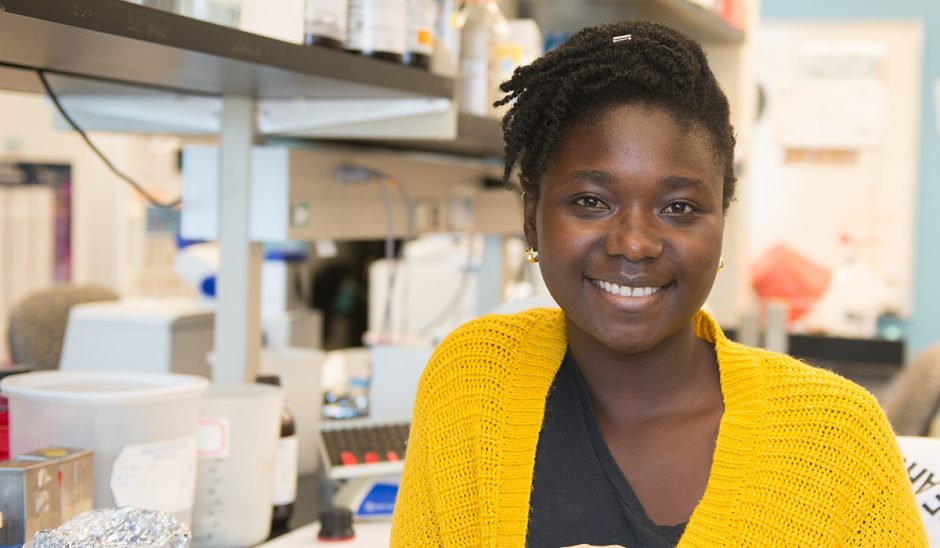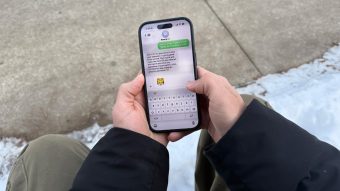
Emilia Asante, a doctoral candidate in biological sciences at Mizzou, is the first in her family to work in the field of science. She’s also the first of her family to attend graduate school.
Growing up, Asante has always tried to understand how things work and her experiences at Mizzou have fostered her passion for discovery. The community Asante has found at the lab allows her to grow her zest for science.
“I love being able to walk down the hall, talk to other lab members about my project and get feedback in real time,” she said. “I love the community that I have built since being here.”
Finding her Path
While Asante is thriving in her role working in Anand Chandrasekhar’s lab at the Bond Life Sciences Center, she credits support she received early on to help her follow her passion.
“So many of my academic journeys were unknown and I had to navigate it by myself,” said Asante, whose parents are immigrants from Ghana. “I was always interested in science and with some help I was put on the right path.”
Before coming to Mizzou, Asante participated in various programs aimed at helping first-generation college students. In the sixth grade she was accepted into the Lang Youth Medical Program, a prestigious six-year science enrichment program sponsored by New York Presbyterian Hospital to prepare talented youth for careers in health care.
As an undergraduate, Asante was accepted into the McNair Scholars Program, a federal program designed to prepare undergraduate students for doctoral programs.
Science on the Brain
Asante’s area of research is understanding the neuron activity in zebrafish, an ideal fish for studying early development as they have a similar genetic structure to humans. Working with Chandrasekhar, Asante is finding possible consequences of abnormal development of neurons controlling facial movement and the impact these functions have on behavior.
“Essentially, I’m trying to figure out what happens when the proper connections are not made,” she said. “For example, autism is a neurological disease, so zebrafish may provide clues to how brain connections may impair communication and behavior.”
After graduation, she hopes to take the training from her research and lab experience at Bond Life Sciences Center to help people using science.
“The possibility that I might discover something that will add to the knowledge in my field – no matter how small the contribution—that’s very exciting,” Asante said.
For more of her story, please see Emilia Asante #IAmScience



